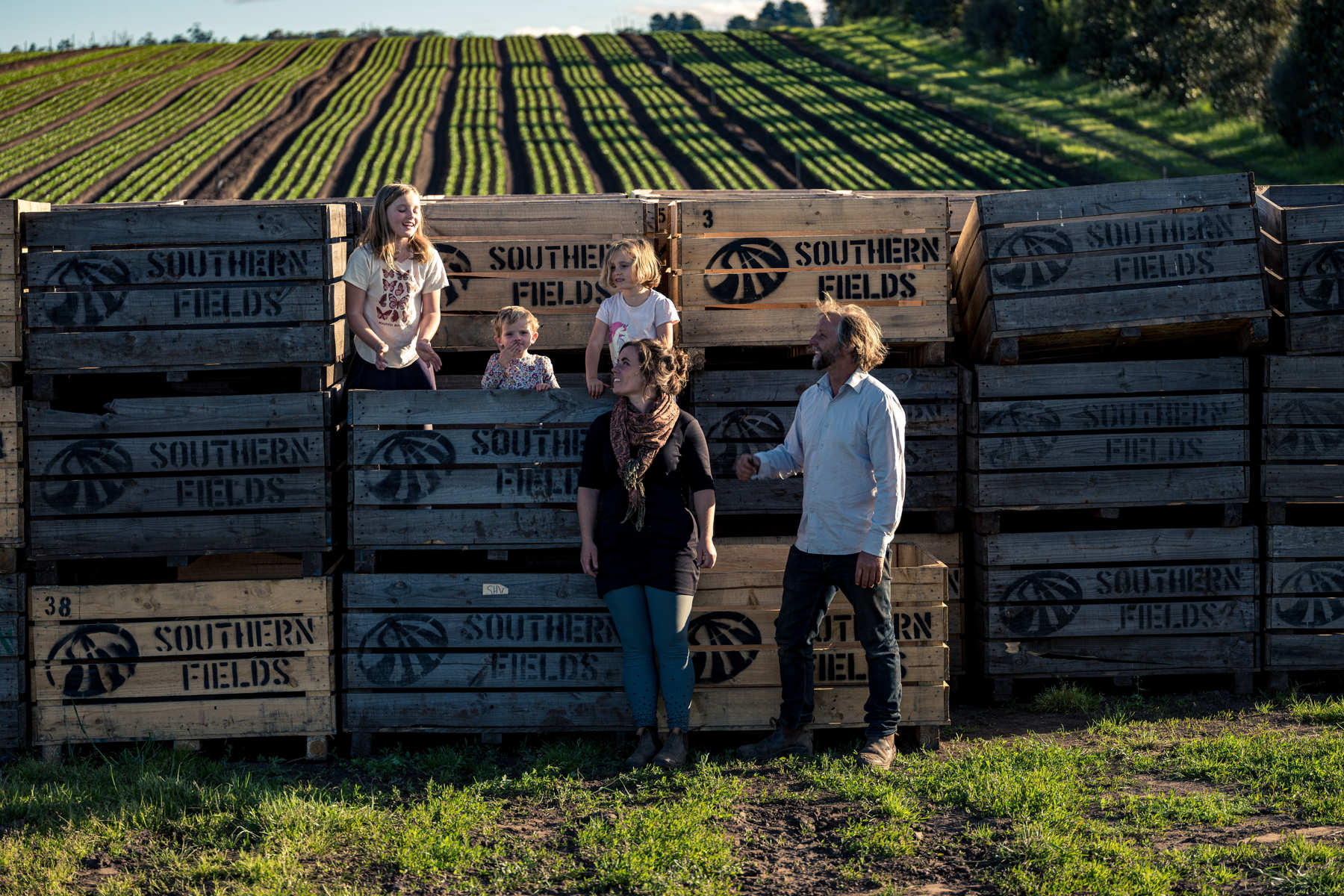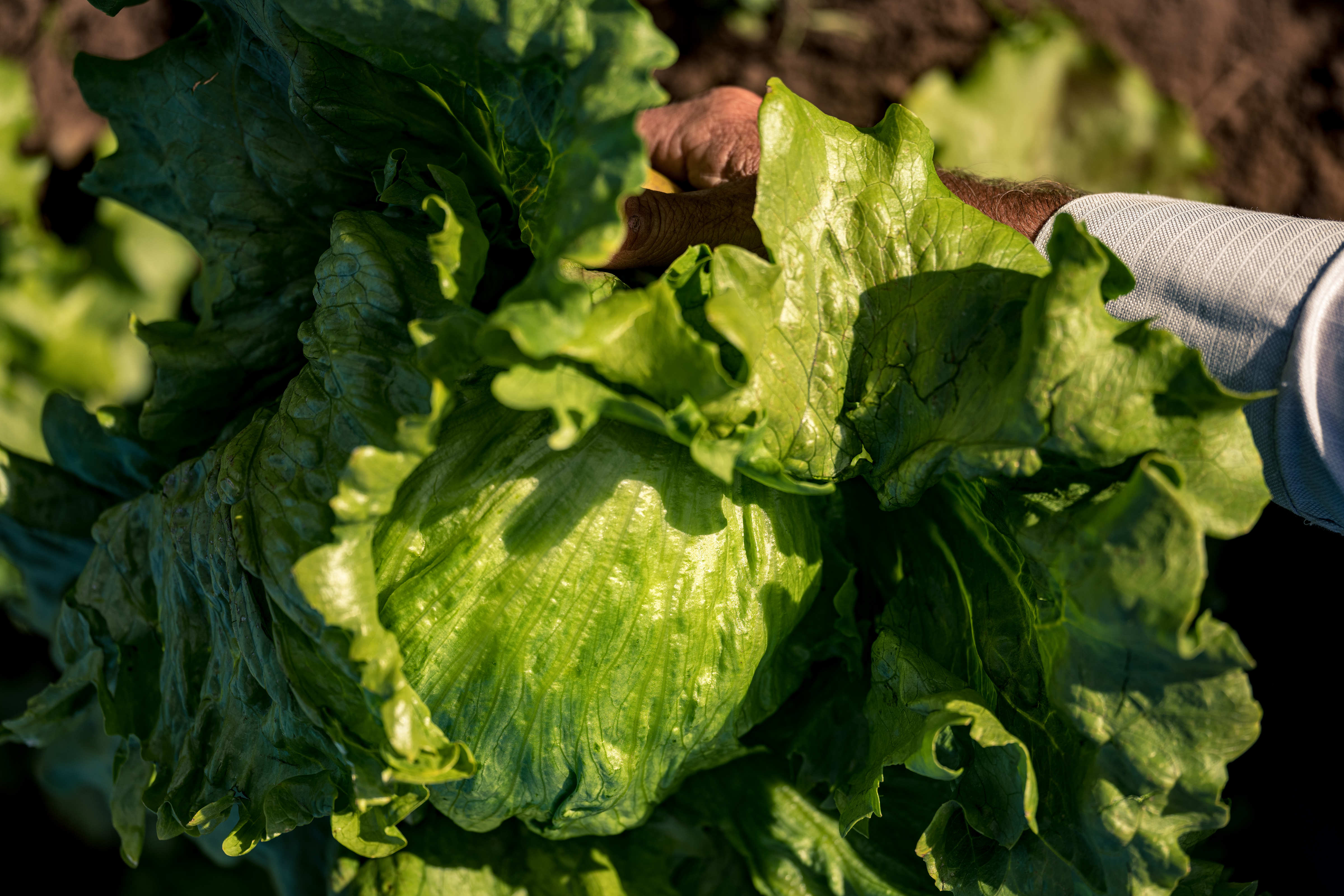Southern Fields owner Amy Field had never farmed anything in her life before she and her husband Ben Houston started Southern Fields farm in 2008. Fortunately, Ben had a pretty good pedigree — father Colin having over 30 years’ experience in farming and being one of the driving forces behind salad giant Houston’s Farm.
Amy credits her parents-in-law with making her and Ben’s 120-hectare farm in Forcett possible. “There’s no way we could have started this business without them,” she says. “At the beginning, it was just the four of us all the time. Colin and Ben would bounce ideas off each other and Ann (Amy’s mother-in-law) has always been 100% supportive.”
Today, Southern Fields is Tasmania’s only supplier of iceberg and baby cos lettuce to one of Australia’s largest supermarket chains.
After 12 years learning the ropes, the couple recognise that having a great support network has been vital to their success. “It’s given us the confidence to grow and the resilience to persist,” Amy says.
In addition, the farm grows around 300,000 of cauliflowers and broccoli in the colder months, a strategy which reduces pest problems, as most insects that enjoy brassicas are most active in the warmer months.
All the produce is cut by hand, before being packed in the field. Each week the plantings are harvested three times — to allow smaller heads to reach size — and then replaced with new plantings in a rotational process to ensure continuous supply to their customers.
Ben and Amy recognised the importance of sustainable farm practices and that means nurturing the soils and generally safeguarding the farm environment. “This will ensure we have a sustainability profitable farm to hand on to our children in the future”. Amy says.
Source: Based on the NAB article within Agribusiness Calendar 2020.

